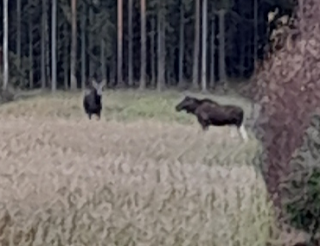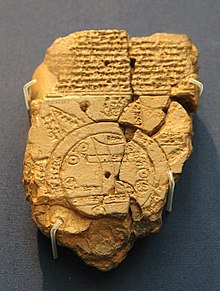24 10 2021
Shaking
See to it that you do not refuse Him who is speaking. For if those did not escape when they refused him who warned them on earth, much less will we escape who turn away from Him who warns from heaven. 26 And His voice shook the earth then, but now He has promised, saying, “YET ONCE MORE I WILL SHAKE NOT ONLY THE EARTH, BUT ALSO THE HEAVEN.” 27 This expression, “Yet once more,” denotes the removing of those things which can be shaken, as of created things, so that those things which cannot be shaken may remain. 28 Therefore, since we receive a kingdom which cannot be shaken, let us show gratitude, by which we may offer to God an acceptable service with reverence and awe; 29 for our God is a consuming fire. Hebrews 12:25-29
Shaking (The Big Idea)
In general, when something shakes things happen. Cooks can shake liquids such as syrups and milk to make a milk shake. At the same time volcanoes can shake and erupt and cause vast devastation such as Mt St Helens that destroyed much of the vegetation and houses from miles around. Shaking is a very good word to use in metaphors that are linked to judgment. In the case of Hebrews 12. 25-29 ‘shaking’ is being used in terms of God’s judgements. This is a more serious type of judgement because God controls the human spirit that lives on after death as well as physical life. Shaking is used here in Hebrews 12 26 in terms of making insecure (Vine; see his comments in the Index)1a
Verse 25
‘See to it that you do not refuse Him who is speaking’.
The pronoun him is referring to God as the speaker. The sentence is not very clear who the speaker is. Some have suggested that it is Moses and Christ but after reading Hughes comments on this verse I take it to be God who is speaking (commentary on Hebrews: Philip Edcumbe Hughes; Published by Eerdmans; page 556 See index 1b)
This verse is telling us to take God’s warnings seriously. Warnings have been given on earth and from Heaven (we will see this more clearly as we go through these verses).
Verse 26
26 And His voice shook the earth then, but now He has promised, saying, “YET ONCE MORE I WILL SHAKE NOT ONLY THE EARTH, BUT ALSO THE HEAVEN.” Hebrews 12:26
We have two references here that show God would shake the whole of reality (heaven and earth) Ex 19:18; Judg 5:4f
This verse seals any ambiguity of it being God who speaks. I disagree with Luther and others who say it was Moses and Christ. This places a wedge between the Old Testament and the New Testament when there isn’t one. It might look good on paper, but it is a false interpretation. Luther would have liked this interpretation because of what he thought about the book of James that ‘it is straw’. Bavinck from the late 19th century and the 20th century corrects this notion. Works are the fruit of faith, however works do not save us from our sins (See Index on Bavinck 1c )
Verse 27
This expression, “Yet once more,” denotes the removing of those things which can be shaken, as of created things, so that those things which cannot be shaken may remain.
This is going to be a big judgement! Why am I saying this? There is only one previous time that God literally shook the whole earth and that was at the Judgement of Noah in which God destroyed most of the human race except one family; Noah’s family.
Verse 28
Therefore, since we receive a kingdom which cannot be shaken, let us show gratitude, by which we may offer to God an acceptable service with reverence and awe;
Out lives are in Jesus Christ he is our lifeboat. As we walk by faith in God’s will, we are indeed in the presence of God for all eternity.
Verse 29
for our God is a consuming fire. Hebrews 12:27-29
This comes from Deuteronomy 4.24
“For the LORD your God is a consuming fire, a jealous God”. God loves his people and he will protect his people. He loved us so much that he sent Christ into the world to die on a cross so that we can have eternal life.
Reflection
We started by looking at Sinai and Zion and now this week Divine judgement on heaven and earth. This is an exhortation to stay faithful to our Trinitarian Holy God. I can’t think of a more serious issue for humanity that divine judgement as it will not be a pretty sight but a shock and awe sight in which our very souls are on the judgement table.
If we live by faith, then we are hid in Christ and it is a joyful event. However, let us be like Abraham when he kept on praying for the people of Sodom and Gomorrah. In the end only one family came out alive and even then, Lot’s wife was turned into a pillar of salt. Let us not look back on our old life. Let us keep moving forward in the love of God by the gift of faith God has given us. Let us love our neighbours whether they are good or evil to the very end as Christ commanded so that they too could be pulled out of the fire that is to come.
Bibliography
- Reformed Ethics; Herman Bavinck; edited by John Bolt; Book 2, chapter 10, pages 411-422 index 1c
- commentary on Hebrews; Philip Edcumbe Hughes; Published by Eerdmans; page 556 See index 1b
- Vines Greek New Testament words (Olive Tree Bible software)1a
Index
1a Shook saleuo (4531), “to agitate, shake,” primarily of the action of stormy winds, waves, etc., is used (a) literally, of a reed, Matt. 11:7; Luke 7:24; a vessel, “shaken” in filling, Luke 6:38; a building, Luke 6:48; Acts 4:31; 16:26; the natural forces of the heavens and heavenly bodies, Matt. 24:29; Mark 13:25; Luke 21:26; the earth, Heb. 12:26, “shook”; (b) metaphorically, (1) of “shaking” so as to make insecure, Heb. 12:27 (twice); (2) of casting down from a sense of security, Acts 2:25, “I should (not) be moved”; (3) to stir up (a crowd), Acts 17:13; (4) to unsettle, 2 Thess. 2:2, “(to the end that) ye be not (quickly) shaken (from your mind),” i.e., from their settled conviction and the purpose of heart begotten by it, as to the return of Christ before the Day of the Lord begins; the metaphor may be taken from the loosening of a ship from its moorings by a storm.
“There is a danger of forgetting that the Bible reveals, not first the love of God, but the intense, blazing holiness of God, with his love as the centre of that holiness.” Hebrews 12:26
1b There is a difference of opinion concerning the identity of him who warned on earth and him who warns from heaven: is it two different persons that are meant or one and the same person? Theophylact, Luther, Moffatt, Héring, and Montefiore are among the many scholars who understand two different speakers to be intended, maintaining that the former refers to Moses, the earthly and merely human mediator of the law, and the latter to Christ, the Mediator from heaven of the new covenant. In the view of Aquinas and some others a contrast is intended between the angelic mediation at Sinai and the mediation of Christ (cf. 2:2 above and Acts 7:38). Many others, however, including Chrysostom, Owen, Bengel, Westcott, Spicq, and F. F. Bruce, contend that God is the sole speaker intended. Thus, Teodorico insists that what we have here is not a diversity of persons but simply a diversity of circumstances, expressed by the phrases “on earth” and “from heaven.” The correctness of this judgment is confirmed by the statement in the next verse: “His voice then shook the earth; but now he has promised …,” from which it plainly follows that God is the sole speaker; for it was the voice of Yahweh, certainly not of Moses or an angel, that shook the earth at Sinai, and it is Yahweh again who promises yet one further shaking in Haggai 2:6f. We have here, in fact, the same kind of statement as is found in the opening words of the epistle, where God who “spoke of old to our fathers” is one and the same with him who has spoken to us “‘in these last days by a Son” (1:1f.).
1c Good Works as Fruit of Faith. In the third place, the Holy Spirit pro duces assurance in us by shining light on the minor premise (I believe) from our good works, as the fruit of faith. Good works are fruit, a manifestation of faith (Matt. 21:43; Luke 8:15; 13:9), by which false prophets, etc., are recognized (Matt. 7:16, 20) and the goodness of the tree is known (Matt.7:17; 12:33). In the Gospel of John, the result of communion with Christ is to be set free from sin (John 8:32, 36), to distance oneself from sin (5:14; 8:11), to bear fruit (15:1-2), to keep the commandments as the expression and proof of love toward him (14:15, 21). And all those commandments of Jesus are concentrated in the great command of brotherly love (13:34–35; 15:12–13, 17). Similarly, we see this in the First Epistle of John: in the love that is born from faith in Jesus, we keep the commandments of God, which is the fruit and proof of our faith, of our being in God (1 John 2:3–6, 29). Whoever does right, is righteous, is born of God (3:6, 9) and is from God, while whoever sins does not know God (3:10). Doing righteousness consists especially of brotherly love (2:7-11; 3:10–11). Love toward God and love toward our brothers and sisters are correlative demonstrations of true love (4:20–21; 5:1-2). The latter is the sign that God abides in us (4:16), a sign that we are born of God (4:7). To have fellowship with God is “to walk in the light” because “God is light, and in him is no darkness at all” (1:5; cf. 1:6). The entailment is clear: “But if we walk in the light, as he is in the light, we have fellowship with one another” (1:7). Paul too is zealous about walking in the Spirit (Rom. 6), emphasizes sanctification, and describes faith as working through love (Gal. 5:6, 22). But he moves from faith to works, unlike John, who ascends from works to faith. James 2, however, says that faith without works is dead.284 That is also what the Reformed tradition teaches.285 But one cannot lean upon good works; absolute assurance cannot be deduced from good works, even though faith and election are manifested in good works.






